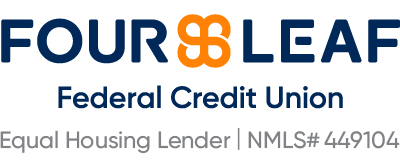You’re our first priority.
Every time.
We believe everyone should be able to make financial decisions with confidence. While we don’t cover every company or financial product on the market, we work hard to share a wide range of offers and objective editorial perspectives.
So how do we make money? Our partners compensate us for advertisements that appear on our site. This compensation helps us provide tools and services - like free credit score access and monitoring. With the exception of mortgage, home equity and other home-lending products or services, partner compensation is one of several factors that may affect which products we highlight and where they appear on our site. Other factors include your credit profile, product availability and proprietary website methodologies.
However, these factors do not influence our editors’ opinions or ratings, which are based on independent research and analysis. Our partners cannot pay us to guarantee favorable reviews. Here is a list of our partners.
Mortgage Interest Rates Forecast
Mortgage rates remained in the high 5% range this week, supported by falling Treasury yields and increased mortgage-backed securities purchases.

Some or all of the mortgage lenders featured on our site are advertising partners of NerdWallet, but this does not influence our evaluations, lender star ratings or the order in which lenders are listed on the page. Our opinions are our own. Here is a list of our partners.
How is this page expert verified?
NerdWallet's content is fact-checked for accuracy, timeliness and relevance. It undergoes a thorough review process involving writers and editors to ensure the information is as clear and complete as possible.
Lead Writer/Spokesperson
- Mortgages
- student loans
- personal loans
Kate Wood is a lending expert and certified financial health counselor (CHFC) who joined NerdWallet in 2019. With an educational background in sociology, Kate feels strongly about issues like inequality in homeownership and higher education, and relishes any opportunity to demystify government programs. Prior to NerdWallet, she wrote about home remodeling, decor and maintenance for This Old House.



Head of Content, Home Loans
- Home loans
- Travel rewards
Jeanette Margle leads the home loans content team at NerdWallet, where she has worked since 2019. Previously, she led NerdWallet's travel rewards content team and spent three years editing for Upgraded Points while self-employed as an editor and writing coach.
Jeanette earned bachelor's degrees in journalism and Plan II Honors from the University of Texas at Austin and has a Master of Education from the University of Houston. A lifelong Texan, Jeanette grew up in a small town in the Hill Country and lives in the Houston area with her husband and daughters.
Mortgage rates are still hanging out at their lowest levels in years — welcome news for homeowners ready to refinance and buyers hoping for a break. The average 30-year fixed rate was 5.87% APR for the week ending Feb. 26, according to rates provided to NerdWallet by Zillow. That’s slightly higher than last week, but still the lowest we’ve seen since September 2022, with most major surveys now officially below 6%. On the surface, that’s a bit surprising: recent inflation data and typical Fed signals would normally point to higher rates, not lower ones.
The bigger story is happening behind the scenes in the bond market. Falling 10-year Treasury yields — along with a narrowing “spread” between Treasuries and mortgage-backed securities — have helped pull mortgage rates down. Add in aggressive mortgage-backed securities purchases by Fannie Mae and Freddie Mac, plus expanded caps on how much they can hold, and you’ve got extra support keeping rates in the fives. If that backing continues, today’s lower rates may have more staying power than expected.
Spring mortgage rates forecast
Now that rates have slipped below 6%, the big question is whether they’ll stay there. Most projections suggest modest movement in the near term, with spring likely bringing clearer direction.
Mortgage loans from our partners

on NBKC
NBKC
4.5
NerdWallet rating
4.5
NerdWallet ratingon NBKC

on New American Funding
New American Funding
4.0
NerdWallet rating
4.0
NerdWallet ratingon New American Funding

on GO Mortgage
GO Mortgage
4.0
NerdWallet rating
4.0
NerdWallet ratingon GO Mortgage

on NBKC
NBKC
5.0
NerdWallet rating
5.0
NerdWallet ratingon NBKC

on New American Funding
New American Funding
4.0
NerdWallet rating
4.0
NerdWallet ratingon New American Funding

on Rate
Rate
4.5
NerdWallet rating
4.5
NerdWallet ratingon Rate

on NBKC
NBKC
5.0
NerdWallet rating
5.0
NerdWallet ratingon NBKC

on Rocket Mortgage
Rocket Mortgage
4.5
NerdWallet rating
4.5
NerdWallet rating3%
on Rocket Mortgage

on New American Funding
New American Funding
4.0
NerdWallet rating
4.0
NerdWallet ratingon New American Funding

on Figure
Figure
4.0
NerdWallet rating
4.0
NerdWallet ratingN/A
on Figure

on New American Funding
New American Funding
5.0
NerdWallet rating
5.0
NerdWallet rating620
on New American Funding

on FourLeaf Federal Credit Union
FourLeaf Federal Credit Union
5.0
NerdWallet rating
5.0
NerdWallet ratingN/A
on FourLeaf Federal Credit Union

on Figure
Figure
4.0
NerdWallet rating
4.0
NerdWallet ratingN/A
on Figure

on New American Funding
New American Funding
5.0
NerdWallet rating
5.0
NerdWallet rating620
on New American Funding

on FourLeaf Federal Credit Union
FourLeaf Federal Credit Union
5.0
NerdWallet rating
5.0
NerdWallet ratingN/A
on FourLeaf Federal Credit Union
Mortgage loans from our partners

on NBKC
NBKC
4.5
NerdWallet rating
4.5
NerdWallet ratingon NBKC

on New American Funding
New American Funding
4.0
NerdWallet rating
4.0
NerdWallet ratingon New American Funding

on GO Mortgage
GO Mortgage
4.0
NerdWallet rating
4.0
NerdWallet ratingon GO Mortgage

on Rocket Mortgage
Rocket Mortgage
4.5
NerdWallet rating
4.5
NerdWallet ratingon Rocket Mortgage

on Veterans United
Veterans United
5.0
NerdWallet rating
5.0
NerdWallet ratingon Veterans United

on NBKC
NBKC
5.0
NerdWallet rating
5.0
NerdWallet ratingon NBKC

on New American Funding
New American Funding
4.0
NerdWallet rating
4.0
NerdWallet ratingon New American Funding

on Rate
Rate
4.5
NerdWallet rating
4.5
NerdWallet ratingon Rate

on Rocket Mortgage
Rocket Mortgage
4.5
NerdWallet rating
4.5
NerdWallet ratingon Rocket Mortgage

on GO Mortgage
GO Mortgage
4.0
NerdWallet rating
4.0
NerdWallet ratingon GO Mortgage

on NBKC
NBKC
5.0
NerdWallet rating
5.0
NerdWallet ratingon NBKC

on Rocket Mortgage
Rocket Mortgage
4.5
NerdWallet rating
4.5
NerdWallet rating3%
on Rocket Mortgage

on New American Funding
New American Funding
4.0
NerdWallet rating
4.0
NerdWallet ratingon New American Funding

on AmeriSave
AmeriSave
4.0
NerdWallet rating
4.0
NerdWallet ratingon AmeriSave

on First Federal Bank
First Federal Bank
4.5
NerdWallet rating
4.5
NerdWallet ratingN/A
on First Federal Bank

on Figure
Figure
4.0
NerdWallet rating
4.0
NerdWallet ratingN/A
on Figure

on New American Funding
New American Funding
5.0
NerdWallet rating
5.0
NerdWallet rating620
on New American Funding

on FourLeaf Federal Credit Union
FourLeaf Federal Credit Union
5.0
NerdWallet rating
5.0
NerdWallet ratingN/A
on FourLeaf Federal Credit Union

on Rate
Rate
4.5
NerdWallet rating
4.5
NerdWallet ratingN/A
on Rate

on AmeriSave
AmeriSave
5.0
NerdWallet rating
5.0
NerdWallet rating640
N/A
on AmeriSave

on Figure
Figure
4.0
NerdWallet rating
4.0
NerdWallet ratingN/A
on Figure

on New American Funding
New American Funding
5.0
NerdWallet rating
5.0
NerdWallet rating620
on New American Funding

on FourLeaf Federal Credit Union
FourLeaf Federal Credit Union
5.0
NerdWallet rating
5.0
NerdWallet ratingN/A
on FourLeaf Federal Credit Union

on NBKC
NBKC
4.0
NerdWallet rating
4.0
NerdWallet ratingon NBKC

on Rate
Rate
4.5
NerdWallet rating
4.5
NerdWallet ratingN/A
on Rate

